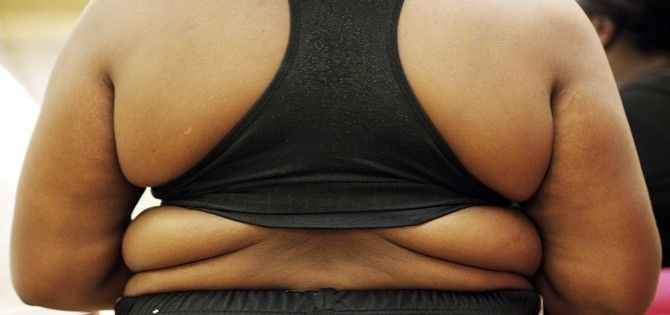Coronavirus Update: How Obese People Can Protect Themselves Amid COVID-19 Pandemic?
Men, older adults and those with underlying diseases have been reported to be more vulnerable than others to the deadly novel coronaviruses. Several researchers have also pointed out that the virus hits obese and overweight individuals harder than the rest.
The researchers at New York University have published a new letter in the Clinical Infectious Diseases, which mentioned that obesity is a risk factor for COVID-19 hospitalizations in those below 60.
"Though patients aged <60 years are generally considered a lower risk group of COVID-19 disease severity, based on data from our institution, obesity appears to be a previously unrecognized risk factor for hospital admission and need for critical care," the Center for Infectious Disease Research and Policy quoted the study researchers.
But, many people struggle with weight management. It isn’t a shameful thing if you are diagnosed as overweight or with clinical or genetic obesity. If you are someone struggling with obesity, here’s how you can protect yourself amid the coronavirus pandemic:
- First off, practice self-isolation and follow all the precautions recommended by the WHO and CDC. Wash your hands more frequently and thoroughly. Avoid touching your face, eyes, nose, or mouth with unwashed hands and refrain from attending any sort of gatherings.
- If you have someone going in and out of your home, you might want to isolate yourself even if they do not exhibit any symptoms.
- Stay physically active. In this pandemic situation, it might be really worth it to make some lifestyle modifications that can help you stay healthy in general. You can begin with a daily workout regimen and start eating healthier. There are umpteen free, low-impact workout videos on the internet that are made especially for people in quarantine or those living in small apartments.
- Stock up on healthy foods including fruits, vegetables, and grains and try to avoid buying unhealthy foods and those rich in saturated fats.
- Since you cannot hit the gym, make sure you spend more time being physically active rather than sitting or sleeping. Climb up and down your stairs and do simple exercises while watching TV.
Health experts opined that younger COVID-19 patients with obesity, who are otherwise metabolically healthy and practice good physical fitness, might have very minimal risk. However, you still need to maintain social distancing and take other precautions.

© Copyright IBTimes 2025. All rights reserved.






















